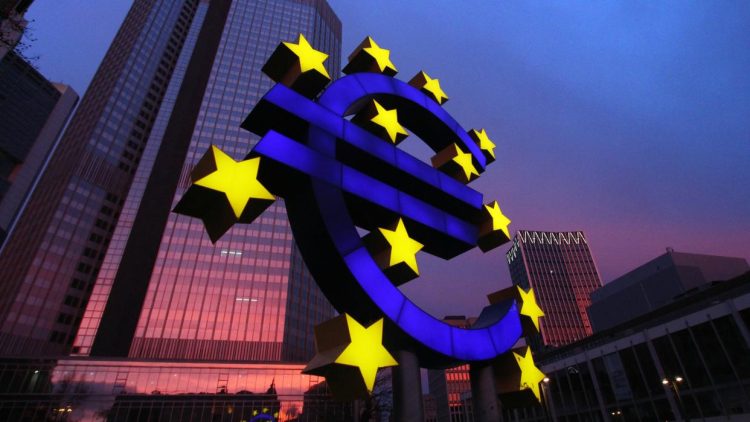Overview of the European Central Bank’s Recent Decision to Raise Interest Rates
In a bold move that has captured the attention of investors, the European Central Bank (ECB) recently decided to raise interest rates, marking another significant shift in monetary policy for the Eurozone. This decision, though not entirely unexpected, is a clear indication of the ECB’s ongoing efforts to combat inflation and stabilize the European economy. The ECB’s action has sparked a fresh round of discussions among economists, market analysts, and investors about its potential effects on financial markets across the region.
The interest rate hike comes after a period of prolonged low rates that were implemented in response to the 2008 financial crisis and the subsequent Eurozone debt crisis. For years, the ECB maintained ultra-low rates to stimulate economic growth and encourage lending. However, the emergence of inflationary pressures in recent months has forced the ECB to reconsider its accommodative stance. The rate hike is the ECB’s attempt to rein in inflation, curb excessive borrowing, and ensure that price stability is restored.
While the decision is part of the broader trend of tightening monetary policies across central banks worldwide, it carries particular significance for the Eurozone, given the region’s economic complexities and challenges. The ECB’s rate hikes are closely watched by investors and market participants, as they can have far-reaching effects on everything from consumer spending to the performance of financial assets.
The Economic Backdrop Driving the Decision
The decision to raise interest rates by the ECB is not happening in a vacuum. It is the result of a confluence of economic factors, both within the Eurozone and globally. In recent years, the region has faced a series of challenges, including sluggish economic growth, rising energy prices, and supply chain disruptions, exacerbated by geopolitical tensions such as the ongoing war in Ukraine. All these factors have contributed to inflationary pressures that the ECB can no longer ignore.
At the same time, global inflationary trends have been a major concern. Central banks around the world, particularly in advanced economies like the U.S. and the U.K., have already embarked on aggressive rate hikes to curb rising prices. The ECB, while initially slower to act, has gradually followed suit. In fact, the ECB’s decision to raise rates is largely seen as a response to the tightening policies of its counterparts in the U.S. Federal Reserve and the Bank of England, which have been raising interest rates for months to tame inflation in their respective economies.
Within the Eurozone, inflation has been running at multi-decade highs. For example, in recent months, inflation has reached levels not seen in nearly 40 years. Much of this has been driven by rising energy prices, which have been further inflated by the geopolitical instability stemming from the Russian invasion of Ukraine. Supply chain bottlenecks have also contributed to the rise in goods prices, creating a perfect storm for inflation to spiral out of control.
The ECB’s mandate is clear: to maintain price stability and keep inflation close to, but below, 2% over the medium term. With inflation remaining well above this target, the ECB has been forced to act more decisively to prevent inflation from becoming entrenched. By raising interest rates, the ECB aims to reduce demand for credit and spending, which, in turn, is expected to dampen inflationary pressures.
Implications for Eurozone Markets and Investments
For investors, the ECB’s rate hike carries significant implications. Interest rate changes are some of the most influential factors in determining market behavior, and a rate hike can affect a wide range of asset classes, from bonds to equities, real estate, and even currencies. Understanding the broader impact of the rate hike is crucial for making informed investment decisions.
Bond Markets
The bond market is perhaps the most directly impacted by changes in interest rates. When the ECB raises rates, bond prices typically fall, as the new higher yields make existing bonds with lower rates less attractive. This is particularly important for long-term bonds, as their prices are more sensitive to interest rate changes. For investors holding government or corporate bonds in the Eurozone, the rate hike may mean a reduction in the market value of their bond holdings.
On the flip side, investors who are willing to take on new positions in the bond market might find that the higher interest rates offer more attractive returns, especially for short-term bonds. The key challenge will be timing the market correctly, as investors will need to assess whether the rate hikes will continue, and for how long, before making any substantial bond investments.
Equity Markets
The effect of interest rate hikes on equity markets is less straightforward. On the one hand, higher interest rates can lead to higher borrowing costs for companies, which can hurt their profitability, particularly in capital-intensive sectors. On the other hand, rate hikes often signal that the central bank is confident in the economy’s ability to withstand higher borrowing costs, which can be a positive sign for stock markets in the long run.
Investor sentiment will be crucial in determining the direction of equity markets in response to the ECB’s rate hike. If the rate hike is perceived as part of a broader effort to stabilize the economy and prevent runaway inflation, it could bolster confidence in the stock market. Conversely, if investors view the rate hike as a sign of a weakening economic recovery, stocks may face downward pressure.
In particular, growth stocks, which are more sensitive to changes in interest rates, may struggle to maintain their valuations as higher rates reduce the present value of future earnings. Conversely, dividend-paying stocks, particularly in sectors like utilities and consumer staples, may become more attractive, as they offer relatively stable returns in an environment of higher rates.
Currency Markets
The ECB’s rate hike also has significant implications for the Euro and currency markets in general. Typically, when a central bank raises interest rates, its currency appreciates against other currencies, as higher rates attract capital inflows from investors seeking higher returns. Therefore, the Euro could strengthen against other major currencies, such as the U.S. dollar or the British pound, following the ECB’s decision.
For exporters within the Eurozone, a stronger Euro could make their products more expensive for foreign buyers, potentially hurting sales and profitability. On the other hand, a stronger currency could benefit importers by reducing the cost of goods imported from abroad. Investors who hold assets denominated in foreign currencies may need to adjust their portfolios accordingly to mitigate currency risk.

Real Estate Markets
The real estate market is also likely to be affected by the ECB’s decision to raise interest rates. Higher interest rates generally lead to higher mortgage rates, which can dampen demand for housing and commercial real estate. This could slow down the rapid price increases that have been observed in certain Eurozone markets in recent years.
For property investors, the key to navigating this environment will be understanding which segments of the market are most sensitive to interest rate changes. For example, residential properties may be more directly impacted by rising mortgage rates, while commercial properties might be influenced by broader economic conditions and tenant demand.
Expert Analysis on How Investors Can Navigate This Change
Navigating a higher interest rate environment requires a shift in investment strategies. Here are a few key tips for investors looking to adjust their portfolios in light of the ECB’s recent rate hike:
- Diversify Across Asset Classes: One of the best ways to protect a portfolio from interest rate risk is by maintaining a diversified mix of asset classes. This can include a combination of equities, bonds, real estate, and commodities. A well-diversified portfolio can help offset losses in one asset class with gains in another, reducing overall risk.
- Focus on Quality Bonds: As interest rates rise, bonds with higher credit ratings and shorter durations are likely to perform better than riskier, longer-term bonds. Investors should focus on government bonds or high-quality corporate bonds to mitigate the risk of price declines in their fixed-income holdings.
- Embrace Dividend Stocks: Dividend-paying stocks tend to be more resilient in a higher interest rate environment. These stocks offer steady cash flow and can provide a buffer against market volatility. Sectors such as utilities, healthcare, and consumer staples are often seen as defensive plays in times of economic uncertainty.
- Consider Hedging Currency Risk: Investors with international exposure may want to consider hedging their currency risk, especially if the Euro appreciates significantly following the ECB’s rate hike. Currency-hedged funds or options strategies can help mitigate potential losses from unfavorable currency movements.
- Monitor Real Estate Trends: With the real estate market potentially slowing down due to higher mortgage rates, investors should stay informed about property market trends. Residential real estate may face challenges, while commercial properties in prime locations could remain relatively stable.
- Stay Informed and Flexible: The economic landscape is constantly evolving, and the ECB’s rate hike may be just the beginning of a series of tightening measures. Investors should remain flexible in their approach, staying updated on economic data, central bank decisions, and market conditions to adjust their strategies accordingly.
Conclusion
The European Central Bank’s recent decision to raise interest rates is a significant move that will reverberate across the Eurozone’s financial markets. While it is an important step in combating inflation, it also creates challenges for investors who must adjust their strategies to navigate a changing economic environment. By understanding the economic backdrop driving the decision and its potential implications for various asset classes, investors can position themselves to weather the storm and potentially find new opportunities for growth.
In this uncertain environment, diversification, careful selection of bonds and equities, and strategic hedging will be essential tools for investors to successfully navigate the effects of the ECB’s rate hike and protect their portfolios from market volatility.






























